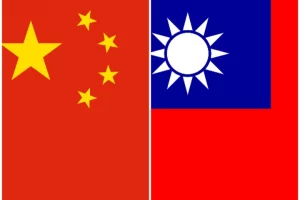India and Russia today agreed to work together to counter the rising turbulence in Afghanistan and build a pan-Eurasian infrastructure extending from Iran’s Indian Ocean coastline to the resource Russian Far East, rich in oil, gas and other minerals.
The two sides also discussed the possibility of Moscow’s active role in the Indo-Pacific region. Following talks between visiting External Affairs Minister S. Jaishankar and his Russian counterpart Sergey Lavrov, the two dop diplomats discussed ways to advance the International North South Transport Corridor and the Chennai-Vladivostok Eastern Maritime Corridor – besides economic, science and technology cooperation.
Jaishankar acknowledged after the talks that the situation in Afghanistan occupied "a lot of our attention" because it has a direct implication for regional security.
"We believe that the immediate need of the day is really a reduction in violence and if we have to see peace within Afghanistan and around Afghanistan, it's important for India and Russia to work together and ensure that much of the progress that we've seen in economic, social and democratic terms are maintained. We are both committed to an independent, sovereign, united and democratic Afghanistan," Jaishankar said after the meeting.
Both countries also discussed "in some detail" on what was happening in Syria, about the Iran issue and Libya. Jaishankar said that with both India and Russia having "longstanding interests" in the sensitive region, peace and stability there remains "very very important" and was in global interest.
Sharing his view-point on the Indo-Pacific, the EAM said that India supports cooperation that reflects the multi-polar and rebalanced character of global politics.
Jaishankar also invited Russia to become a partner in fostering a free and open Indo-Pacific region.
"What I told Minister Lavrov, which I repeat to you is, we are very much committed to the centrality and unity of the ASEAN and we believe that the Indo-Pacific Oceans Initiative which we tabled at the East-Asia Summit is very important for the larger region. We, of course, because of our larger geo-political compatibility with Russia, see a more active Russian presence and participation in the region as something very very important," he said.
The Indo-Pacific, experiencing an economic boom, is defined by the Malacca straits that link the Indian and the Pacific Ocean.
Jaishankar’s visit was also meant to prepare for Russian President Vladimir Putin's possible visit to India later this year. The EAM said that he can assure that when the Annual Bilateral Summit takes place, the development and progress in India-Russia cooperation will be very much on display before everyone, including the 2+2 Dialogue of Foreign and Defence Ministers.
"We have always seen our relationship with Russia as a contribution to global peace, security and stability. I think what makes our working together so natural and comfortable is our belief in a multipolar global order. We consider that to be a reflection of a very natural and inevitable process of evolution of inter-state relations in the 21st century," the EAM said after the meeting.
Discussions were also held on the nuclear, space, energy and defence sectors. Lavrov also mentioned the concrete first pour for Unit 5 of the Kudankulam Nuclear Power Plant having taken place recently.
"You have been our original and strongest partners on the space side. The energy cooperation between us has grown very significantly in the last few years and we see that today reflected both in new potential investments and long-term commitments which we have agreed to in the field of oil and gas. Our defence military technical cooperation but I would say even industrial collaboration today has been strengthened by Russian interest in the Make in India programme, which is very visible," said Jaishankar.
India also expressed appreciation for the support it got from Russia during the second wave of the Covid pandemic.
"There were four consignments which were flown-in on a very expedited basis by the Russian Government and of course as you've also heard now India has become a partner of Russia in the production and use of the Sputnik V vaccine and we believe that this is not only good for the two of us but it has positive implication for the rest of the world," the minister said.
With India poised to hold the Presidency of the Security Council in August, Jaishankar shared with Foreign Minister Lavrov, the plans and ideas for that month, saying that New Delhi values Moscow's participation and cooperation in that regard.
"India is currently the chair of the BRICS and also of the RIC, it is also something we discussed, we have common membership of G-20, of ASEAN led forums, SCO and CICA. We have an SCO Foreign ministers' meeting coming up very soon," Jaishankar said.




















